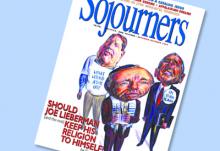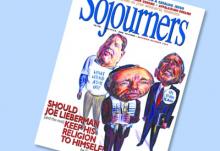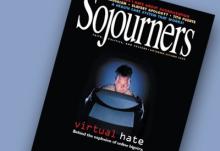For much of the 30 years that I have been in some of America's top newsrooms, religion was treated like those klutzy galoshes our parents forced on us during heavy snowstorms.
Feature
A Washington Post ombudsman once tried to explain the stereotyping of evangelicals by a Post reporter who described them as "poor, uneducated, and easy to command."
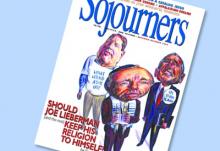
The most effective Christian eco-groups are leaner and less hampered by unwieldy church bureaucracies.
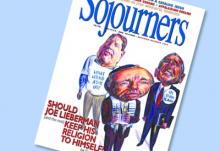
The Earth may be the Lord's but we've trashed the place. The good news is that Christian attitudes toward the environment are changing.
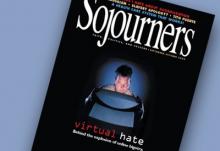
21st Century global marketers are more seductive than ever before. And they want your kids.
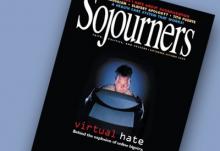
Perhaps the strongest effort toward health care reform is the Universal Health Care Action Network and its current U2K Campaign, "Universal Health Care in the Year 2000."
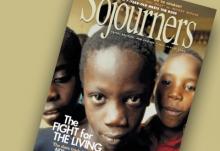
Feared by some, welcomed by others, charitable choice might transform social services in this country. So why have so few people even heard of it?
Artist Barry Moser's new illustrated Bible shows that the people of scripture---and books themselves---are very much alive.
People in the ancient world were very careful about how they approached their gods.
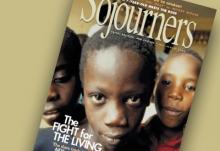
A half-century from now, will the churches finally learn to get along? We look into our crystal ball to see…
A young Israeli soldier kicks a small rubber ball to two Palestinian boys in the West Bank city of Hebron, his machine gun slapping gently against his back as he moves. His fellow soldiers smoke and play cards nearby. Men in long flowing robes and white headscarves pass boys riding donkeys, tiny Palestinian shops loaded with film and souvenirs, and stores whose doorways are filled with bulging sacks of colored spices and grains.
Just beyond the soldiers sits an immense, foreboding building—one of its two entrances is guarded by Palestinian soldiers, the other by Israelis. It’s called the Mosque of Abraham or the Tomb of the Patriarchs, depending on who’s speaking, and inside are massive stones marking the supposed burial sites of Abraham and Sarah. Concrete walls enclose the tombstones. Muslims and Jews can view them through a set of iron bars, but only from separated parts of the building. The structure was bisected in 1994 after a Jewish settler, an American, entered the building and killed 49 Palestinians preparing to celebrate the Muslim holy month of Ramadan.
The Israeli soldiers are also in Hebron, a Palestinian-controlled city of about 140,000, to guard Jewish settlers who live down the street in a compound distinctive for its brand-new buildings and the barbed wire that surrounds it. "Five hundred soldiers are here to guard 30 settler families," according to Bourke Kennedy, a member of the Christian Peacemaker Team in Hebron. The Jewish settlement is one of four in the Hebron district; roughly 6,000 Jewish settlers live in two settlements on the city’s outskirts. Because of their political and symbolic importance, settlements such as these have been targets—and impetus—for Hamas and other Palestinian groups who have resisted the Israeli occupation with violence.
